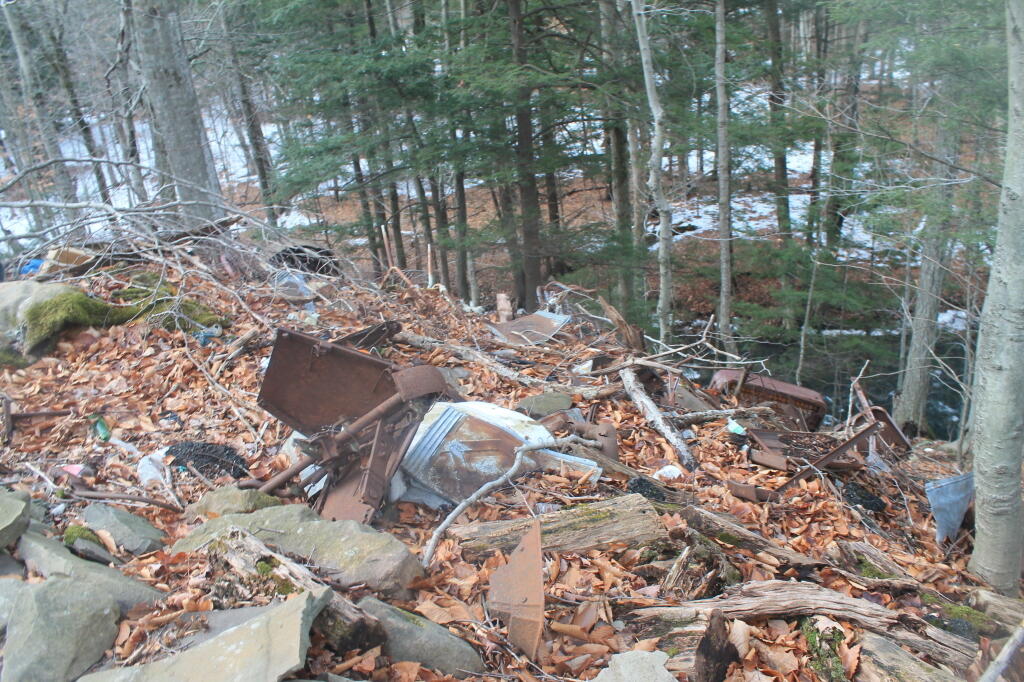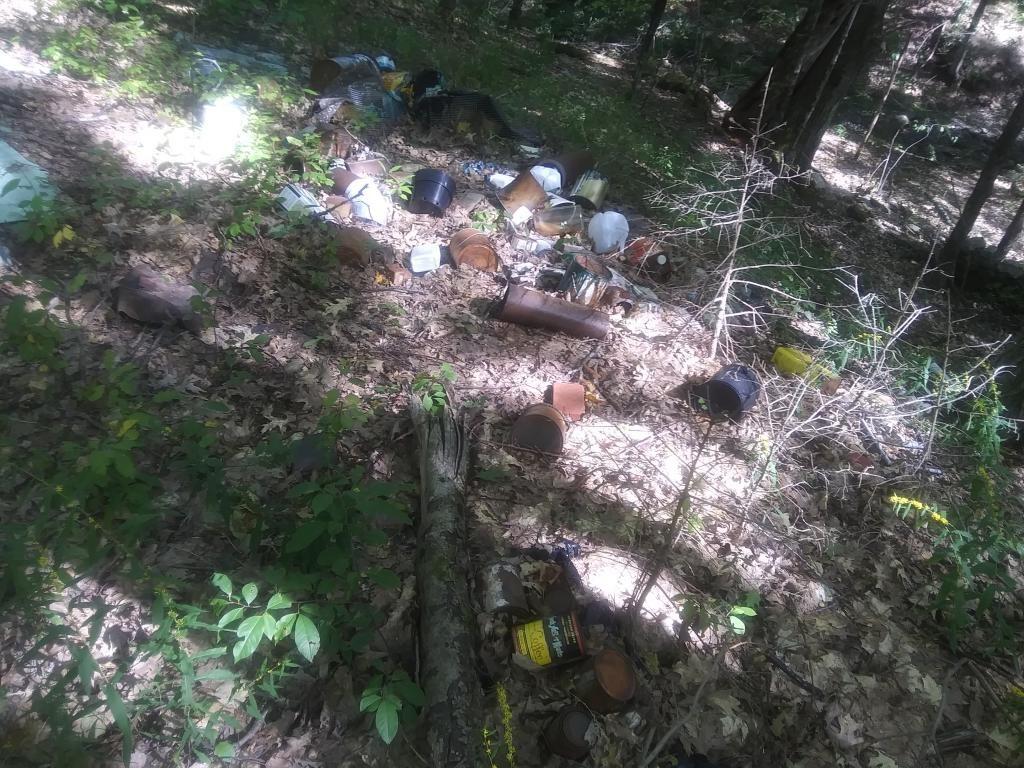Been reading a lot about farm dumps lately … 🗑

.
It’s hard to find rural property that has been used for farming or homesteading, that hasn’t had trash and discards dumped on at least part of the land over the years. Buying land, inevitably means cleaning up land or at least managing old dumps on it.
Old dumps can be a problem, particularly if there are fluids, pesticides or other toxins dumped on them, although many are quite old at this point and what would have leaked out is long ago. Likewise, hardware disease from livestock chewing on old glass and cans can be an issue, digging into the soil and hitting junk when gardening or farming, and just the nuisance of looking at a waste pile.
On the other hand, old dumps can be an asset too. Dumped and buried once useless materials like broken cast iron, hunks of scrap metal, even old wire has value today as scrap metal. Some old things are now antiques and treasure. Even discarded glass and porcelain can be dug up, smashed and used for aggregate for various projects around the homestead and farm. Not all old waste necessarily has to be removed and hauled to a landfill.
Old dumps can also be used for their original purpose — dumping. Some relatively non-toxic wastes may not be worth hauling off the farm. A lot of landfills don’t want burn barrel ash due to the fire risk, and dumping the ash can allow things like partially burnt paper to biodegrade. Concrete and other building debris might not be worthwhile to haul off-site, especially when there is an existing dump that can be filled. Junk appliances with no scrap value might be fine to add to the dump. Obviously, to prevent settling you don’t want to be burying a lot of wood or organic wastes, or anything significantly toxic that could come to bite you or a future owner.
Now I get the nuisance impact of it all. But often old dumps can be covered with rock and dirt, packed with manure and allowed to reseed and grow. And we shouldn’t be so damn afraid of waste, especially when everybody, even most careful homesteader or farmer generates so much of it. Maybe contemporary anti-dumping and liability laws make it hush-hush, but it goes on still to this day in the back woods.


